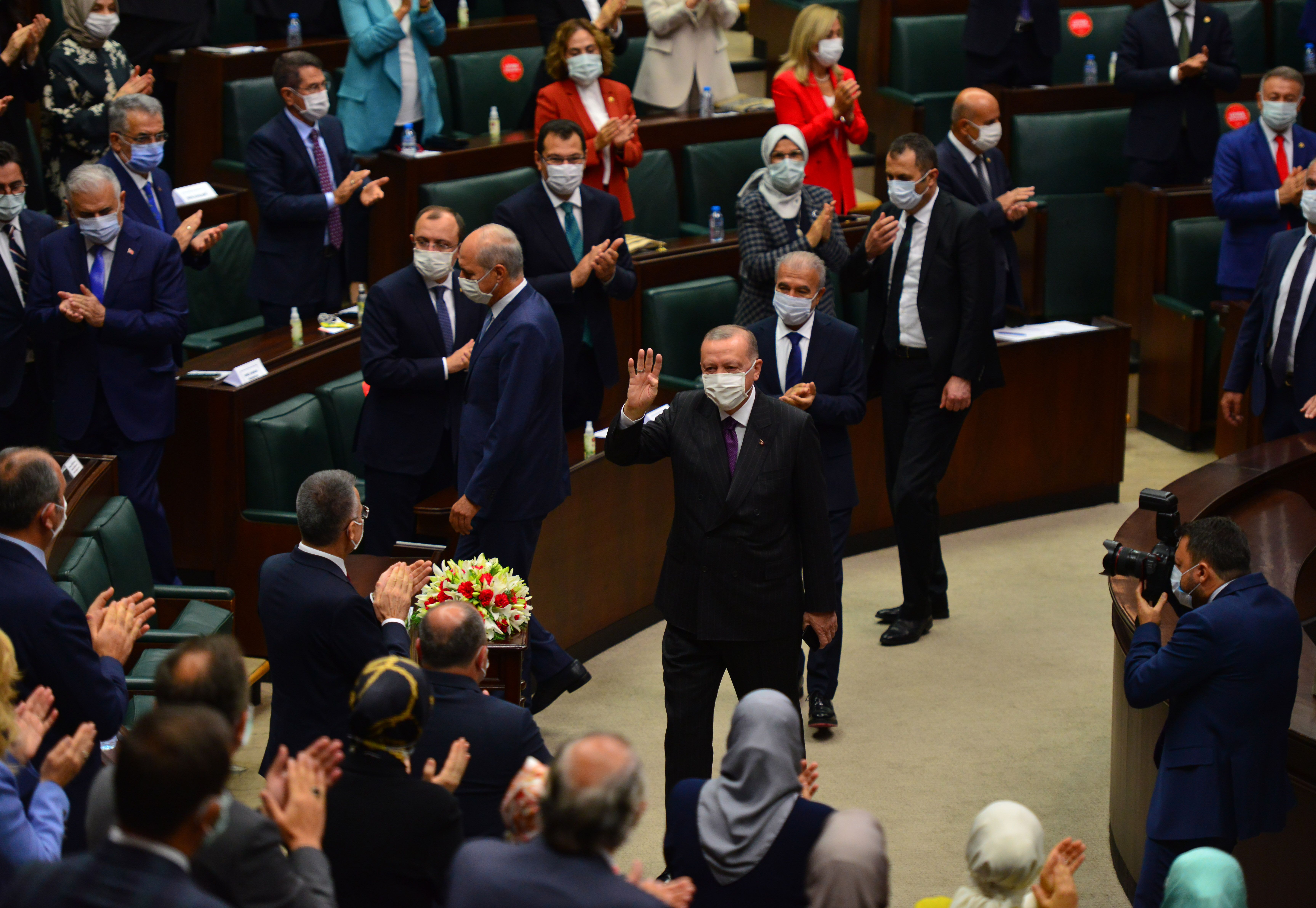Arab States Against Turkey

A key factor in the deterioration of Arab-Turkish relations was the change in Turkey’s policy towards the Middle East and North Africa after the outbreak of the Arab Spring in 2011. Turkey supported the street protests and Islamist parties linked to the Muslim Brotherhood (MB), which took power in Egypt and Tunisia. Turkey also became involved in the civil war in Syria. This support continued after the 2013 military coup in Egypt, which overthrew the Turkish-backed president from MB, Mohamed Morsi. Some of the Arab regimes in the Persian Gulf—Saudi Arabia, the UAE, and Bahrain, where local factions of the MB constitute the main opposition group—became increasingly hostile to Turkish politics. At the same time, Turkey perceived their actions as an attempt to bring to the Middle East an order that would threaten its interests, especially after the Abd al-Fattah al-Sisi, who is hostile to the MB, came to power in Egypt and in light of the financial support he received from the UAE and Saudi Arabia. Sisi and the rulers in the Gulf who support him accuse Erdoğan of spreading radicalism, although they themselves are connected to Islamist parties (e.g., the Salafi Al-Nur party in Egypt).
The Main Axes of the Dispute
The dispute regarding the MB translates into relations between the states in other areas. When in 2017 Saudi Arabia, the UAE, Bahrain, and Egypt—“the Quartet”—put a virtual blockade (trade embargo and sea and air restrictions) on Qatar, accusing it of supporting terrorism, Turkey sent ships with food to the principality. Two days after the announcement of the blockade, the Turkish parliament approved plans to send troops to its base in Qatar, established in 2016 (about 5,000 soldiers are stationed there), which the Saudi Arabia and the UAE perceive as a threat to their stability. Since then, Qatar and Turkey have conducted about 10 joint military exercises, and in 2018, the Turkish Ministry of Defence signed contracts with Qatar to sell it military equipment worth $800 million. In August, Qatar and Turkey signed a tripartite agreement on military cooperation with the Libyan government of Fayez al-Sarraj, linked to the MB. The conflict in Libya is another axis of dispute between Turkey and the UAE, Saudi Arabia, and Egypt, which support the Libyan National Army of Gen. Khalifa Haftar, a military rival of the Sarraj government. Turkey’s military support for al-Sarraj in December 2019 made it possible to repel Haftar from Tripoli, to which Egypt responded with the threat of intervention by its troops.
Egypt sees Turkey’s involvement in Libya as a threat to the ruling regime and its interests in the Mediterranean. In response to the Turkish-Libyan agreement on the delimitation of the sea borders (according to which the Turkish economic zone partially overlaps with the Greek one), Egypt concluded a delimitation agreement with Greece in October this year. By tightening relations with the EU Member State, Egypt wants to strengthen the legitimacy of its actions in the Mediterranean and at the same time consolidate the anti-Turkey sentiment in the Eastern Mediterranean Gas Forum, established in 2019 (the Forum includes Israel, Jordan, Greece, Cyprus, the Palestinian Authority, and Italy). Egypt, Saudi Arabia, and the UAE also take an opposing stance to Turkey on Syria. Although after the outbreak of the civil war in this country, Saudi Arabia, like Turkey, supported the Syrian opposition financially and militarily (including radical Islamist militants), and the UAE was critical of Assad’s actions, since 2018, these Arab monarchies have been striving to normalise relations with the Syrian president. Among their goals is weakening Turkey, whose military established a buffer zone in northern Syria. Turkey also has military bases in Iraqi Kurdistan, which it uses to fight the Kurdistan Workers Party (PKK), considered a terrorist organisation, and direly opposed by Turkey. In August, Iraqi Prime Minister Mustafa al-Kadhimi asked for support from the Arab League in countering Turkey’s actions in the region. The latter’s increasingly frequent interventions contributed to the League’s decision to establish a ministerial committee for Turkish interventions in Arab affairs in October. It is chaired by Egypt, and its members include Saudi Arabia, the UAE, Bahrain, and Iraq.
Arab Rulers Against Turkey
The Anti-Turkish rhetoric and actions of Arab regimes stemmed from their citizens’ positive attitudes towards Turkey and the MB. After Sisi came to power, in the Arab States the MB was recognised as a terrorist organisation and criticism of parties associated with it—including the Turkish ruling Justice and Development Party, AKP—intensified. The proportion of Egyptians in favour of strengthening economic cooperation with Turkey fell from 48% in 2013 to 19% in 2016. In Saudi Arabia, anti-Turkish rhetoric strengthened with the appointment in 2017 of Mohammed bin Salman (frequently referred to internationally as “MBS”) as heir to the throne and the increasing cooperation between Turkey and Qatar. The most important crisis in Saudi-Turkish relations was the murder of Saudi journalist Jamal Khashoggi at the Saudi Arabia consulate in Istanbul in 2018. Although MBS continues to deny any links between himself and the murderers, Turkey published evidence linking him to the case. In July in Istanbul, the Saudis accused of the crime were tried in absentia, despite a death sentence issued in December 2019 in Saudi Arabia for five people convicted of the crime. In April, Saudi Arabia blocked the websites of two Turkish media agencies. In October, a Saudi boycott of Turkish products began, preceded by unofficial actions that made it difficult for local businesses to import fabrics and food from Turkey. The UAE and Morocco have joined the boycott. Although exports to Arab states account for only a fifth of the value of all Turkish exports (in 2019 combined, $36 billion on $180 billion), Arab regimes hope to further weaken Turkey, especially in view of its economic problems.
Despite the actions of Saudi Arabia, the UAE, and Egypt, Palestine maintains good relations with Turkey. In recent years, Turkey has emerged as the number one advocate of the Palestinian cause, especially in light of the recent UAE and Bahrain normalisation agreements with Israel. Turkey’s support for Fatah (which governs the Palestinian Authority while Hamas de facto controls the Gaza Strip) and criticism of the Arab-Israeli agreements contributed to the Turks taking over the role of mediator between Fatah and Hamas, traditionally played by Egypt.
Conclusions and Perspectives
The Arab states’ policy towards Turkey is dominated by their efforts to counter Islamist movements linked to the MB. Since the revolution in Egypt, the rivalry between authoritarian regimes and the MB prevents moderate movements from significant roles in the politics of the countries of the region. Moreover the unity of the Arab states against Turkey deepens the abuse of the claim of fighting radicalism in pursuit of their foreign policy goals. While the administration of U.S. President-elect Joe Biden’s administration will be more critical of their actions, it is unlikely that it will limit the state’s anti-Turkey stances.
Saudi Arabia, the UAE, and Egypt will continue to use their position in the region to tighten relations with weaker states that fear isolation in order to further reduce Turkish influence. This is visible in Egypt’s efforts to institutionalise cooperation with Iraq and Jordan since 2019. Actions to weaken Turkey will also contribute to the full normalisation of these countries’ relations with the Assad regime and efforts to play the greatest possible role in the reconstruction of Syria.
The intensification of the Turkish-Arab rivalry threatens the interests of the EU in the Mediterranean. The escalation of the conflict may hinder the work of European gas companies and adversely affect the EU’s economic relations with the countries of the southern Mediterranean. At the same time, given Turkey’s provocative policies towards Greece and Cyprus and its use of migration to put pressure on the EU, the Union may benefit from Arab opposition to Turkey’s actions. The Arab states’ actions against Turkey’s economy may prompt the latter to turn to the EU market and, as a result, reduce its rhetoric against the EU. However, while some interests of the EU and Arab regimes coincide, closer cooperation with authoritarian rulers will be detrimental to the Union’s image amongst Arab societies. It could threaten the independence of EU policy in the region and permanently undermine trust in European-Turkish relations. The Arab-Turkish conflict also poses a challenge to Poland’s plans to strengthen relations with the Arab states.


